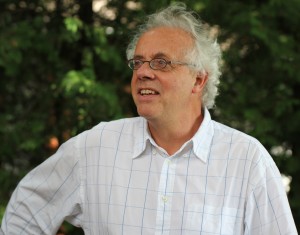 I’m sorry that I’ve upset many people who have cancer or who have had a bad experience of somebody dying of cancer [see previous blog]. That wasn’t my intention. I was writing for The BMJ and so primarily for doctors. My main intention was to urge people to think much more about death and dying because I’m convinced that will be good for all of us and for our society.
I’m sorry that I’ve upset many people who have cancer or who have had a bad experience of somebody dying of cancer [see previous blog]. That wasn’t my intention. I was writing for The BMJ and so primarily for doctors. My main intention was to urge people to think much more about death and dying because I’m convinced that will be good for all of us and for our society.
I declined all interviews, but I want to clarify some points and respond to others.
I must start by making clear that the views I expressed are wholly my own, as in all my blogs. They do not reflect the views of any of the many organisations with which I’m associated.
1. I know that dying of cancer can be a horrible death, and I’ve experienced several such deaths. I also know that while cancer is primarily a disease of old age, it is particularly tragic when a child or young person dies.
2. I have written a much calmer and more measured piece on “A Good Death,” and some might like to read that piece.
3. Death from any cause can be a horrible experience, made worse if you have never prepared for it. To our ancestors (and not very distant ones) preparing for death was central to their lives, and I think that our society—and that of most other developed societies—is diminished by our denial of death. I think it’s healthy that my post caused more discussion of death.
4. My central point, almost too ridiculous to state explicitly, is that you have to die of something, so it’s a question of the least bad alternative. We do seem to have reached a point where some behave as if death is not inevitable, and there is a sense that medical research and doctors are launched into a misguided attempt to defeat death. Immortality, all philosophers and writers agree, would be unbearable, and without death every birth would be a tragedy. For me, death gives life meaning, a narrative arc.
5. It’s true that you have limited choice over your cause of death, but we do have some choice. I take a polypill every day, which reduces my chance of dying of a heart attack, stroke, or heart failure but therefore increases my chances of dying of cancer or dementia. My last choice of cause of death is dementia, although as we make “advances” that may be what we all die of—at vast expense.
6. I deliberately stayed away from the debate over assisted suicide, but that is, of course, the main way that we could choose our cause of death.
7. Doctors have generally been less negative about my blog than non-doctors, and most doctors recognise the problem of going on too long with trying to fend off death. There is evidence that doctors choose to die differently from their patients. Few people would choose to die in intensive care, but increasingly that’s where people do die.
8. One of the reasons why my blog attracted so much attention was my dismissive final comment on wasting money on cancer research. People seem to have thought that I meant spend nothing on cancer research. I didn’t. I’m not against cancer research and have even done some in my career. I do think, however, that we might get a better return on our investment by spending less on cancer and more on the many other areas of research—like neurological and mental health issues, and unglamorous areas of research such as health systems and nursing. We would certainly achieve very much more if we were to invest in making sure that everybody in the world got simple, cheap, evidence based treatments rather than in novel cancer drugs, many of which extend life by a matter of mere weeks and are hugely expensive.
9. Finally, I return to the point that we should all think about our deaths, and we should all, old and young, have advance directives (living wills) that specify our wishes about the end of life. If you haven’t got one, I urge you to do so. You might need it sooner than you think.
Richard Smith was the editor of The BMJ until 2004. He is now chair of the board of trustees of icddr,b [formerly International Centre for Diarrhoeal Disease Research, Bangladesh], and chair of the board of Patients Know Best. He is also a trustee of C3 Collaborating for Health.
